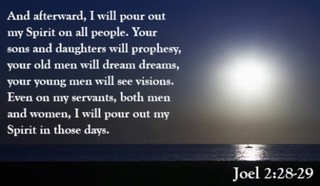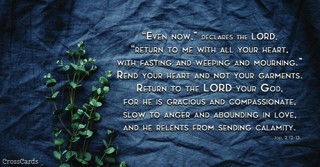
- Recent Translations
- All Translations
Yoel 2:3
Share
Settings
Yoel 2:3 Meaning and Commentary
A fire devoureth before them, and behind them aflame burneth,
&c.] This is not to be understood of the heat of the sun, or of the great drought that went before and continued after the locusts; but of them themselves, which were like a consuming fire; wherever they came, they devoured all green grass, herbs, and leaves of trees, as fire does stubble; they sucked out the juice and moisture of everything they came at, and what they left behind shrivelled up and withered away, as if it had been scorched with a flame of fire: and so the Assyrians and Chaldeans, they were an emblem of, destroyed all they met with, by fire and sword; cut up the corn and herbage for forage; and what they could not dispense with they set fire to, and left it burning. Sanctius thinks this refers to fire, which the Chaldeans worshipped as God, and carried before their armies as a sacred and military sign; but this seems not likely: the land [is] as the garden of Eden before them;
abounding with fields and vineyards, set with fruitful trees, planted with all manner of pleasant plants, and all kind of corn growing upon it, and even resembling a paradise: and behind them a desolate wilderness;
all green grass eaten up, the corn of the field devoured, the vines and olives destroyed, the leaves and fruit of them quite gone, and the trees themselves barked; so that there was just the same difference between this country before the calamities described came upon it, and what it was after, as between the garden of Eden, or a paradise, and the most desolate wilderness; such ravages were made by the locusts, and by those they resembled: yea, and nothing shall escape them;
no herb: plant, or tree, could escape the locusts; nor any city, town, or village, nor scarce any particular person, could escape the Chaldean army; but was either killed with the sword, or carried captive, or brought into subjection. The Targum interprets it of no deliverance to the ungodly.
